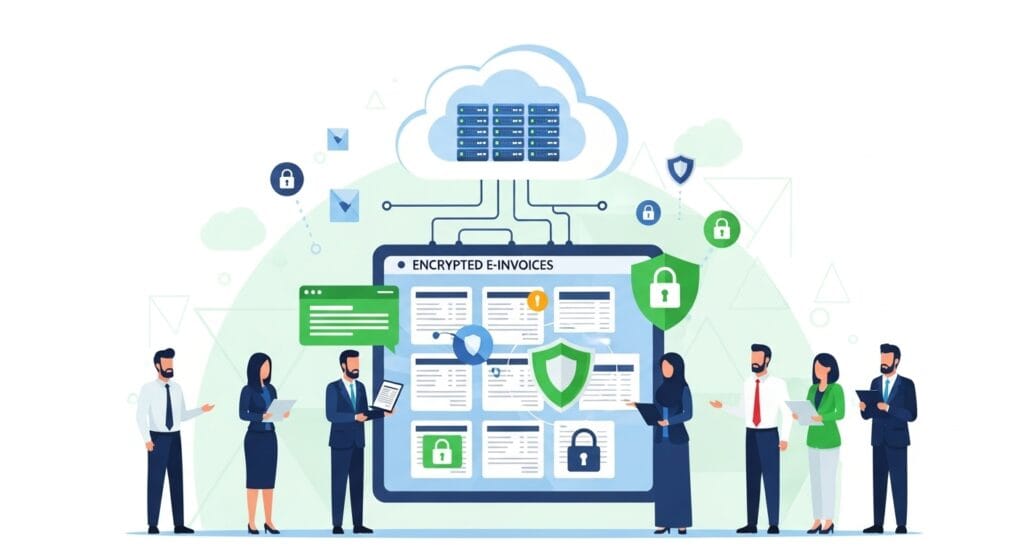In Saudi Arabia, using electronic invoices has become an essential part of the tax and business system. With the digital transformation taking place in the kingdom, businesses are required to adopt electronic invoices as a means to simplify business transactions and ensure financial transparency. The electronic invoicing system contributes to better tax collection and compliance with local laws.
Meet government standards with ease using a trusted electronic invoice KSA platform.
What is the Electronic Invoicing System?
Definition of Electronic Invoices
An electronic invoice is an invoice that has been issued and processed electronically via dedicated systems. It holds the same legal power as a paper invoice, but it is faster and more efficient for data exchange.
Main Benefits of Using Electronic Invoices
- Time and Effort Saving: Issuing electronic invoices is much faster compared to paper invoices.
- Transparency and Tax Compliance: Electronic invoices help track financial transactions and ensure that businesses comply with tax regulations.
- Improved Operational Efficiency: By automating the invoicing process, human errors are minimized, and workflow is enhanced.
How to Implement the Electronic Invoicing System in Saudi Arabia
Registering in the Electronic Invoicing System
Before businesses can start issuing electronic invoices, they must register with the Zakat, Tax, and Customs Authority’s electronic tax system. This registration includes obtaining a tax identification number and activating the account via the Authority’s platform.
Requirements for Issuing Electronic Invoices
The electronic invoice must contain the same information required by the tax system, such as:
- Company name and tax identification number
- Description of goods or services provided
- Value Added Tax (VAT) due
- Total amount
Verifying the Electronic Invoice
The electronic invoice must match the data registered in the tax system. Businesses can verify the accuracy of the invoice using the verification tools available on the Zakat, Tax, and Customs Authority platform.
Compliance with the Zakat and Tax System via Electronic Invoices
Electronic invoices help businesses comply with VAT laws by providing accurate data about financial transactions. This makes tax auditing easier and ensures timely tax payments.
Benefits of Electronic Invoices for Businesses
Efficiency and Speed in Transactions
Using electronic invoices speeds up all business processes, from issuing invoices to making payments, saving time and improving cash flow.
Improving Customer Relationships
By providing accurate and easily accessible invoices, the electronic system increases transparency and builds customer trust.
Conclusion
The electronic invoicing system is a crucial step toward improving the tax system in Saudi Arabia. By complying with this system, businesses can streamline their operations and increase operational efficiency.
Start today with Daysum to implement an easy and secure electronic invoicing system in your business.




